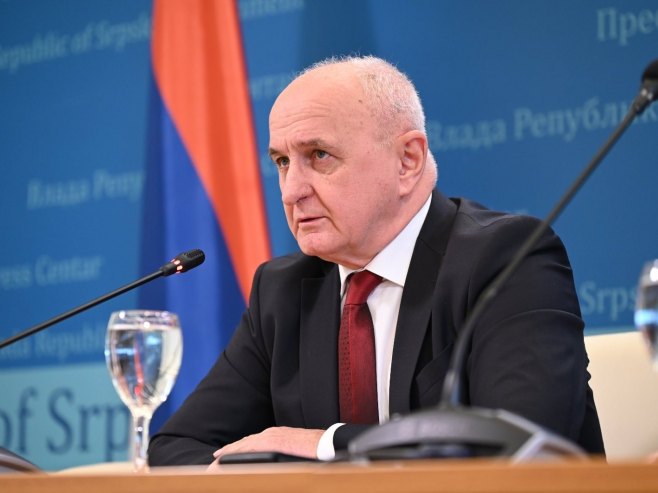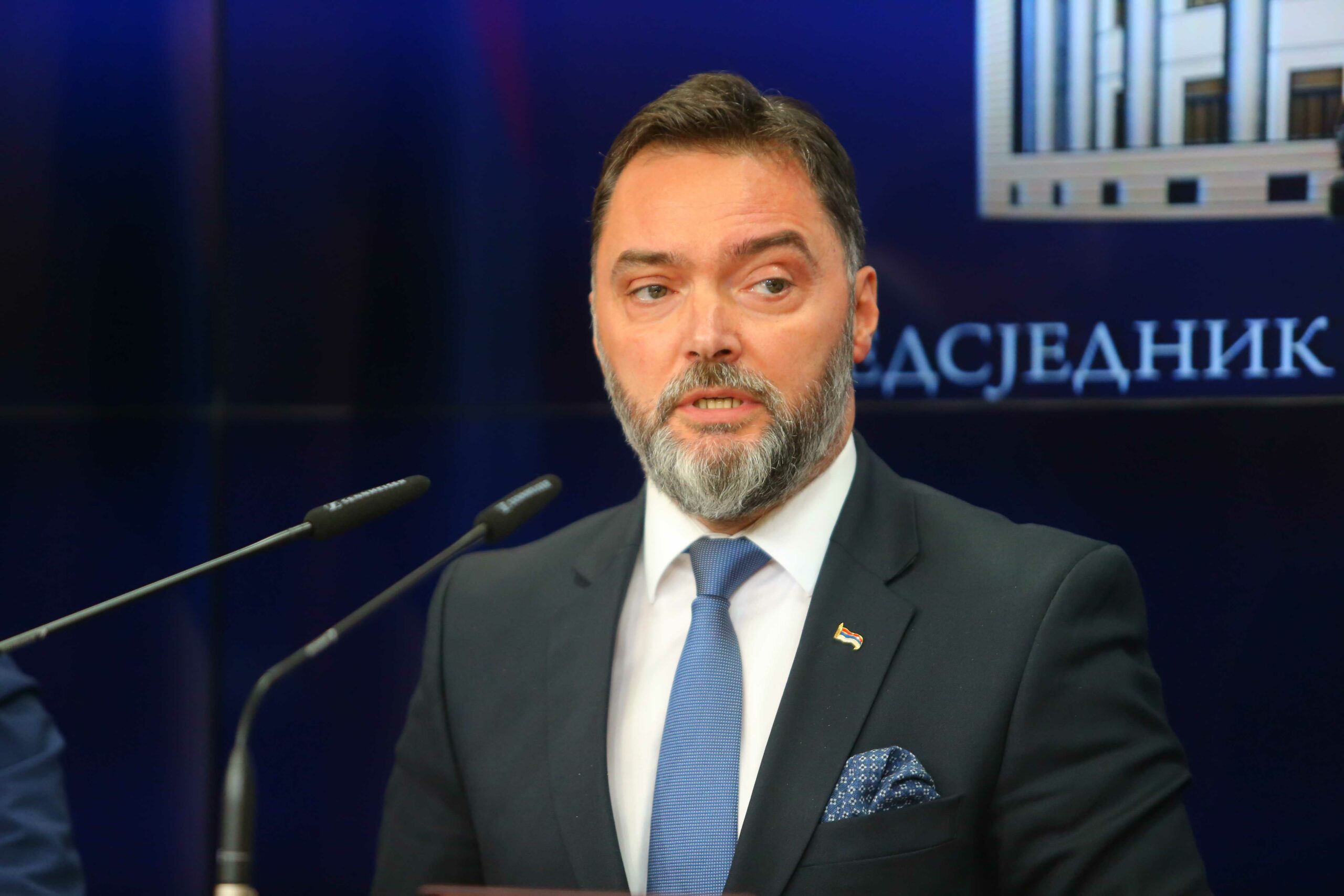Many countries, when voting on the Srebrenica resolution at the UN General Assembly, realized that it was not about crimes or concern for Muslims or Bosniaks, but rather about the politicization of the issue, said Deputy Prime Minister and Minister of Internal Affairs Ivica Dačić. He emphasized that the resolution was about the West’s need to vote for it to justify their actions in the 1990s in our region and to justify the 1999 aggression, portraying Serbs as the main culprits for the breakup of Yugoslavia.
The Deputy Prime Minister for Foreign Policy and Security and Minister of Internal Affairs, Ivica Dačić, stated that he believes that during Thursday’s vote on the Srebrenica resolution, the least focus was on the nature of the crimes.
- This is why the number of votes for the resolution is so low. When I say low, I mean in relation to the number they expected. They assumed they had secured two-thirds of the votes, which might have been accurate before Serbia got involved in the action – Dačić told RTS.
He noted that many countries realized that the resolution was not about crimes or concern for Muslims or Bosniaks, but about the politicization of the issue.
- It is about the need for the West to vote for this resolution because it is necessary for them. This is not necessary for Muslims, Serbs, or Croats. The West needs such resolutions to justify their actions in the 1990s in our region and the 1999 aggression, to say that the Serbs were the main culprits for the breakup of Yugoslavia and the main criminals – the Deputy Prime Minister stated.
When asked why this is happening now, almost 30 years later, Dačić responded that they have not managed to include it in the legal archive of the United Nations so far, as they tried to do through the Security Council but failed.
- Russia vetoed it, and that’s why they went to the UN General Assembly where there is no veto power. Similarly, this item was defined as a culture of peace, meaning it was not an issue requiring a two-thirds majority, but a simple majority. Although the UN Charter states that important issues should be voted on by a two-thirds majority, someone decided this is not an important issue. If it’s not important, why are we discussing it at all – Dačić noted.
The resolution on Srebrenica is illegal in two cases
- First, it lacks the legitimacy and legality of Bosnia and Herzegovina because the Presidency did not make that decision. Secondly, the General Assembly does not have the right to put on the agenda something that is on the agenda of the Security Council without the Security Council’s approval, and last week there was a Security Council session on Bosnia and Herzegovina – Dačić emphasized.
He added that he believes most countries realized it is a political resolution aimed at punishing Serbia and warning it to conduct foreign policy in line with the interests of Western countries.
- The main conclusion is that we should maximally respect the countries that voted against this resolution. If I can clearly send a message to those in our country advocating for following Western policy and tightening sanctions against the Russian Federation and China, this is a slap in the face for them. Why? Because if those countries had not voted for us, and if we pursued a policy of quarrelling with them and imposing sanctions on Nicaragua, Venezuela, Belarus, Russia, China, Syria, and others, we would have had one vote, and it’s questionable if we would have even that one, if our authorities would vote in Serbia’s interests – Dačić stressed.
Speaking about the votes from European countries, the Deputy Prime Minister said it shows the main directions and centers of Serbia’s foreign policy and that it is impossible to convince the UK, France, Germany, and the USA to vote for our interests, but we must work with countries that are not at the forefront of Western interests.
- This means being dedicated to them and being friends, not immediately thinking of ways to act against North Korea, as if North Korea is our enemy, while they voted for us – Dačić pointed out.
He stressed that nothing can be done against the countries that voted for the resolution, reminding that only about ten countries voted for the US resolution declaring Jerusalem as the capital of Israel.
- The US threatened everyone that it would affect their bilateral relations, but people didn’t want to vote for that proposal, and now a small Serbia managed to get a significant number of votes, whether against or abstained. If you look at 84 countries out of 193, you see that the majority did not support this resolution – Ivica Dačić highlighted.
He emphasized that relations with countries that voted for the resolution cannot be severed, but they should be noted.
- Tomorrow there will be another vote. Tomorrow the issue of Kosovo might come to the agenda. I think the topic that was on the agenda now is specific and incomparable to any other. If Kosovo were on the agenda, we would win with two or three times more votes directly in our favor – Dačić assessed.
The impact of the resolution will be smaller than expected, as it was not adopted by consensus
He emphasized that, since the resolution was not adopted by consensus and an absolute majority, its impact will be significantly smaller than expected.
- Imagine the irony for Serbs, that Germans and Turks were the main creators of this resolution’s text. And now, you know, it’s so hypocritical towards our people that someone who has been killing you and committing genocide and ethnic cleansing for centuries now gives you political and moral lectures about all this – Dačić emphasized.
He added that Germans admitted to the Holocaust because they were defeated.
Source: RTRS









